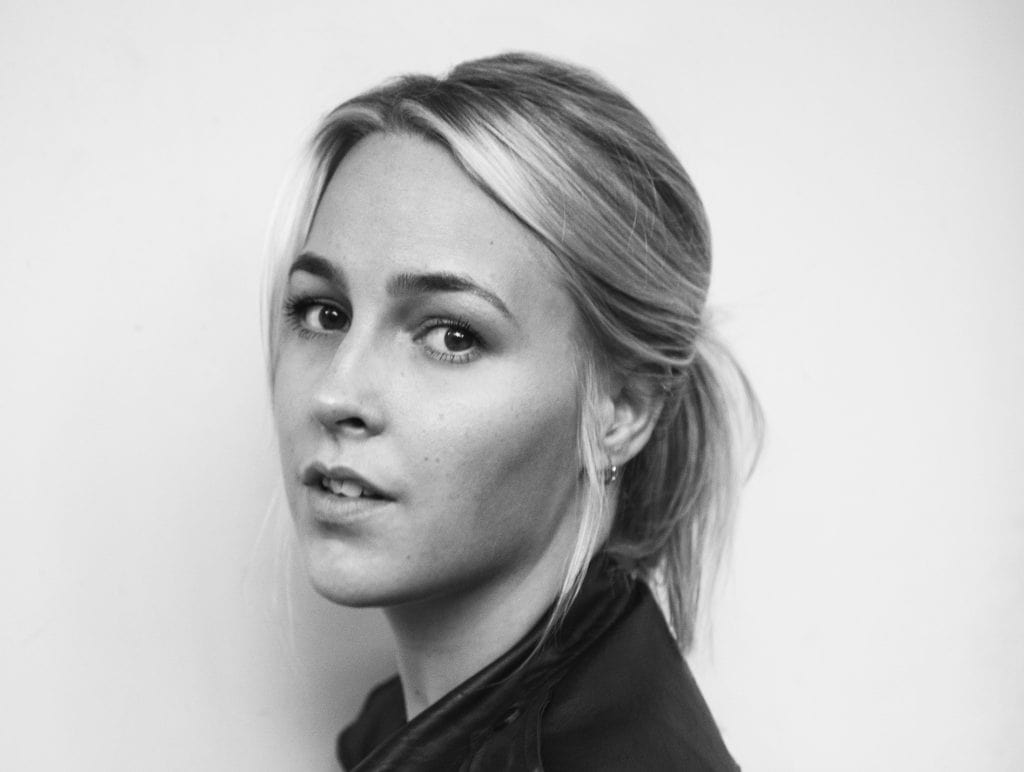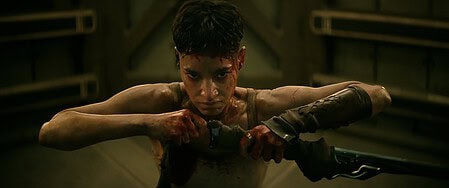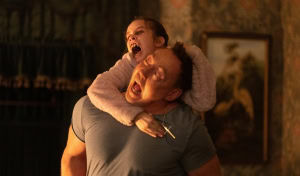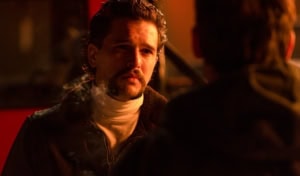If you’re watching Mr. Malcolm’s List for the first time, you might assume the film drew inspiration from other Regency-era projects, notably the Netflix series Bridgerton.
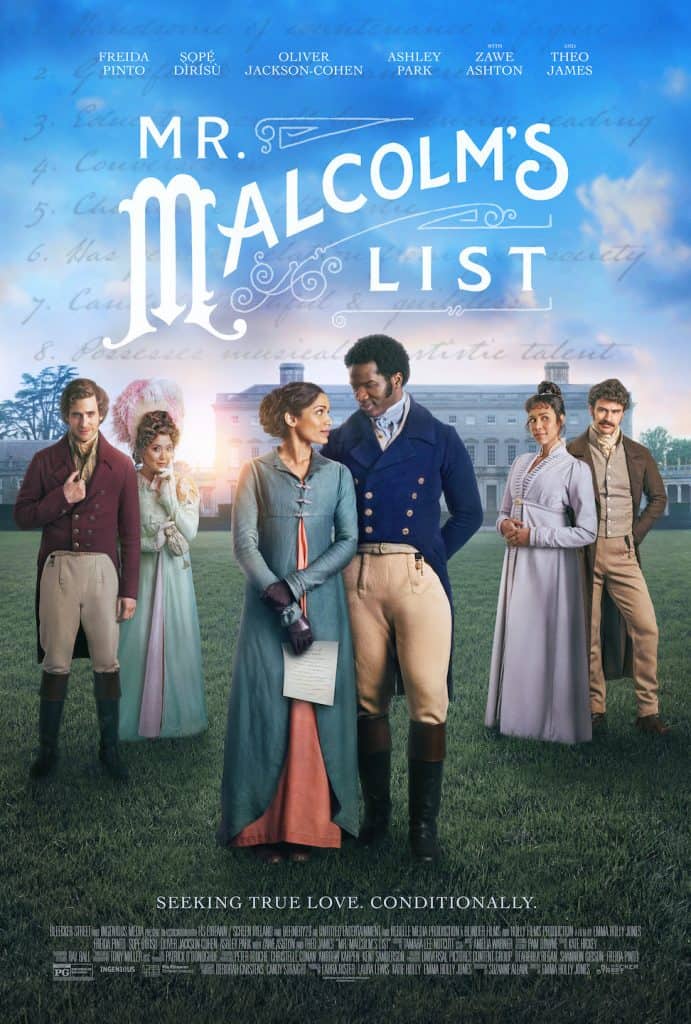
On the contrary, director Emma Holly Jones’ influences come from some unexpected places, as she explained in an exclusive interview with Geek Vibes Nation.
For instance, one of the film’s most memorable scenes – Mr. Jeremy Malcolm (Sope Dirisu) and Selina (Freida Pinto) meeting for the first time in a moonlight gazebo – calls back to a beloved Hollywood classic: The Sound of Music.
“One of my favorite films is The Sound of Music,” Jones explained. “The orangery [where the scene takes place] reminded me of the gazebo in The Sound of Music. And the wide shot of [Mr. Malcolm and Selina] standing there looking at each other was my nod to the shot of Captain Von Trapp and Maria at the end standing at the gazebo singing to each other.”
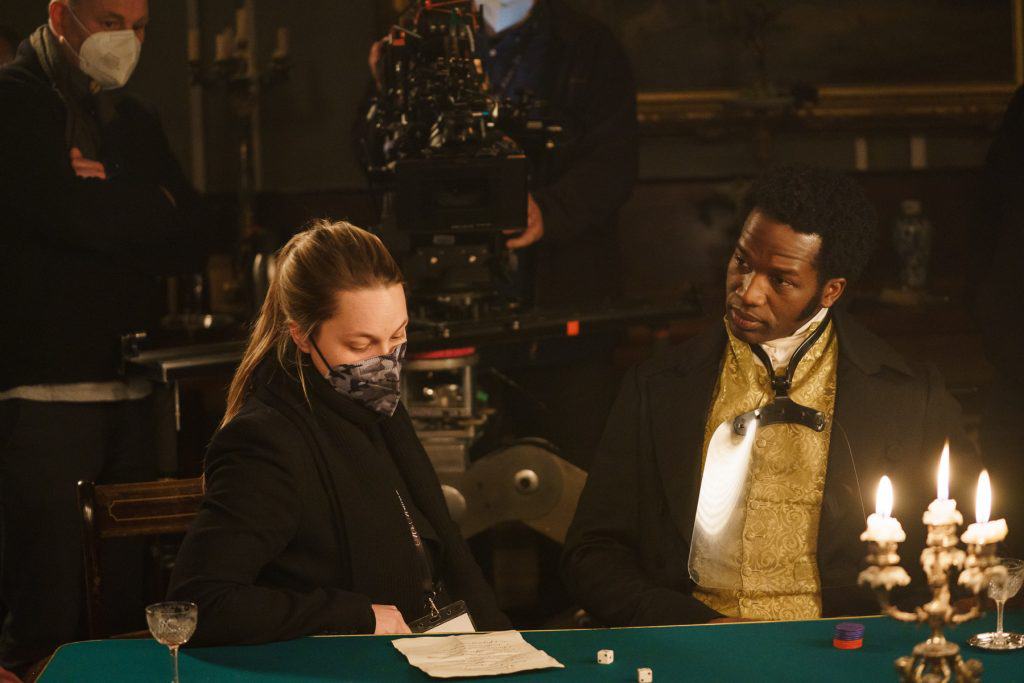
“[The Sound of Music] was the movie that made me want to make movies. It’s one of the movies I found most moving as a small child. When I walked into that location, I felt the romance, which felt very connected to the scene.”
Mr. Malcolm’s List originated as a novel by Suzanne Allain, about a woman named Julia Thistlewaite who enlists her childhood friend Selina in a plot of revenge against the titular Mr. Malcolm, who spurned her because she didn’t meet his requirements for a potential wife. Jones’ introduction to the novel came well after she had optioned the screenplay, also penned by Allain.
“I heard the script for the first time on The Black List Table Reads podcast, which is an amazing way to discover a piece of material and let your imagination run wild. I was drawn to the tone of it, which I felt had a ‘90s old-school Richard Curtis feeling. That’s what drew me to it.”
Jones wasn’t looking to tell a story set in Regency England as her first feature film. (She had previously directed and produced shorts.) She was looking for a project like Curtis’ Four Weddings and a Funeral or Notting Hill, with its rom-com sensibilities. When bringing Mr. Malcolm’s List to the big screen (after producing a short film version that essentially served as a proof of concept), she wasn’t interested in being hamstrung by perceived notions of the demographics of the time.
“The magic of movies is being able to create details and these incredible, imaginative worlds for people to try and live in for two hours,” said Jones. “I don’t think anybody who worked on this movie was trying to make a historically accurate movie. The world we created around 1818 England was a fun place to create a fantasy, with its own rules and life.”
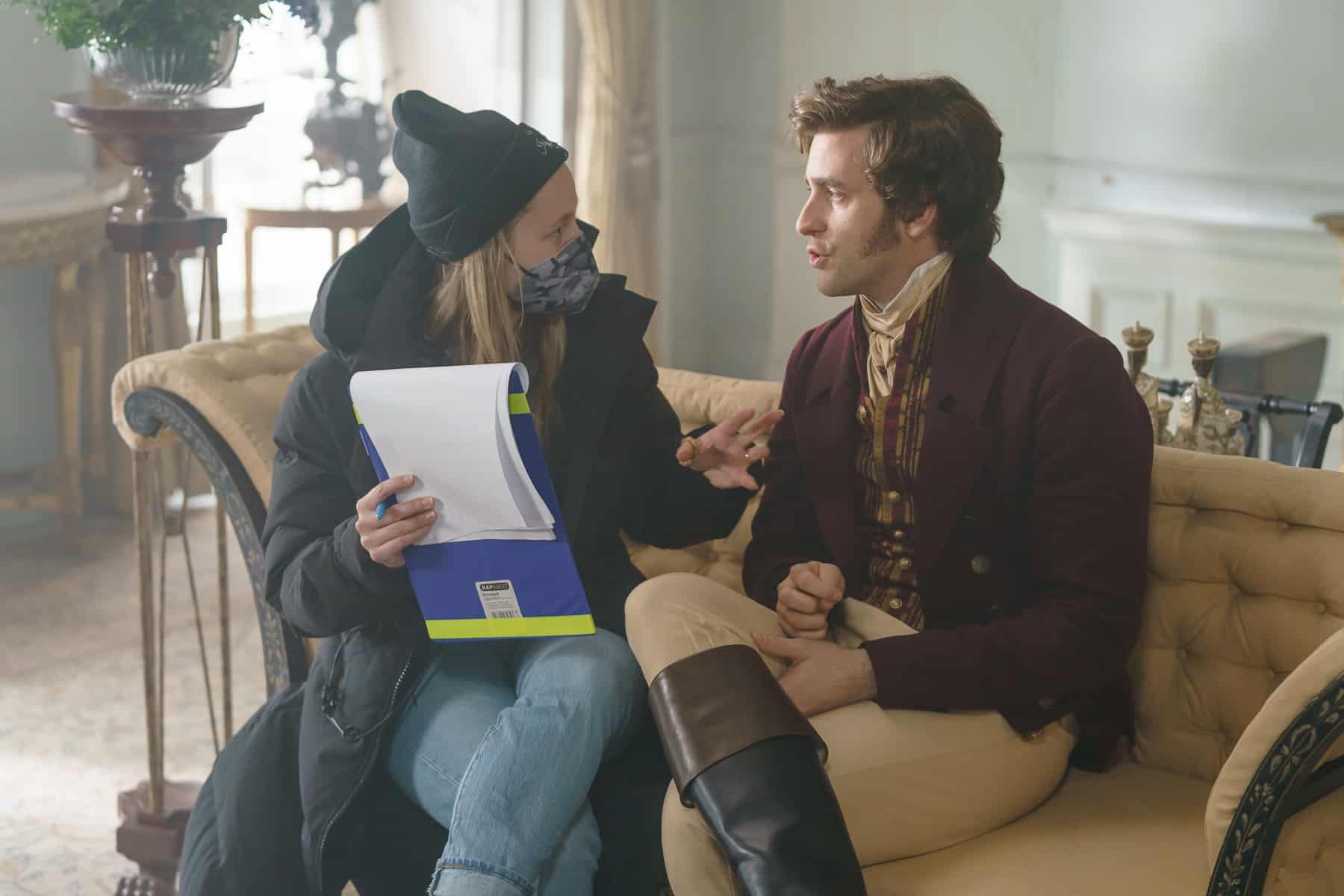
Key to creating Mr. Malcolm’s List’s whimsical fantasy was its multiracial cast, including Pinto, Dirisu, Zawe Ashton, and Oliver Jackson-Cohen. While Bridgerton made waves with its multi-ethnic casting, Jones drew inspiration for her approach from another, equally influential source.
“Hamilton made me question myself as an artist and filmmaker,” Jones explained. “It made me question the rules in place that made no logical sense to me anymore because of what Lin Manuel Miranda did. I also had to ask myself about my education. What did I think the world actually looked like back then?”
Jones recounted several historically diverse stories, from Jane Austen’s unfinished work Sandition, featuring a mixed-race character, to the 2013 film Belle starring Gugu Mbatha-Raw. “That was enough for me,” she said.
In embracing a multi-racial cast, Jones sought the input of her cast to help inform the world she wanted to create so that it felt authentic to them. “I wanted them to walk onto that set and into their characters’ shoes and feel everything.” Jones’ dedication to creating a welcoming environment involved every department, from production design to hairstyle. “We worked together cohesively to create our own rules in this world and embed our actors’ cultures into these characters.”
That collaboration manifested in many ways. Dirisu improvised some of Mr. Malcolm’s dialogue during his lakeside conversation with Selina. Instead of donning a wig, Doña Croll, who played Mr. Malcolm’s mother, Lady Kilbourne, and Eileen Buggy, the film’s hairstylist, adapted her natural locs into a period hairstyle. Lord Cassidy, played by Oliver Jackson-Cohen, didn’t have much of a role in the original novel and script, so Jackson-Cohen and Jones worked closely to flesh out his character, including imagining his love life.
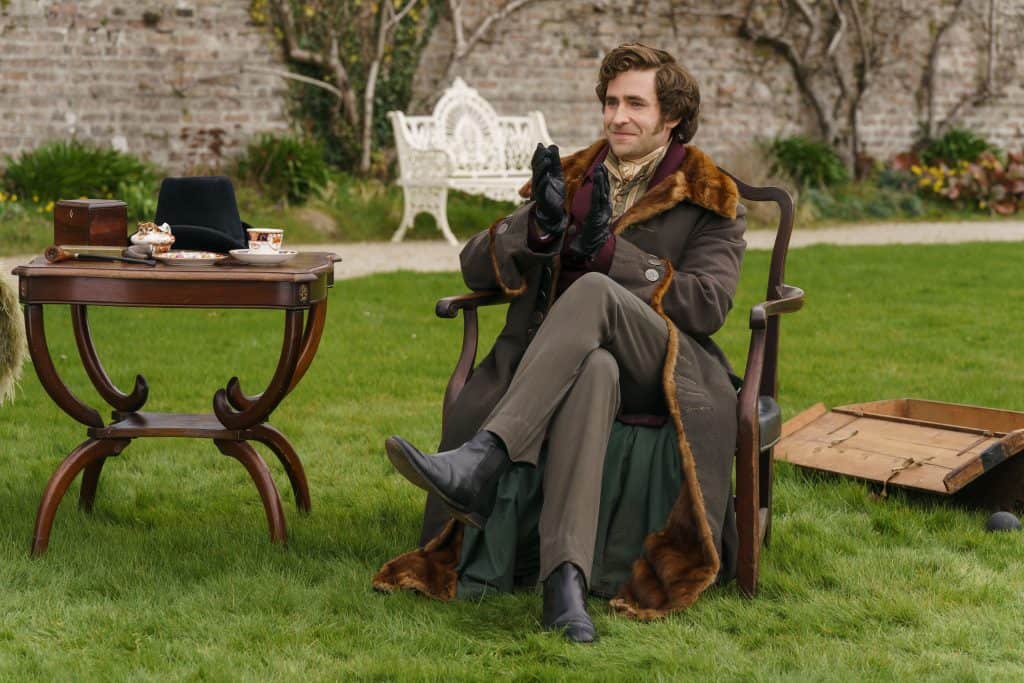
“Ollie and I spoke a lot about whether he would be looking for a wife, and our answer was no,” Jones said about Lord Cassidy’s sexual identity. “We had a very strong feeling that Cassidy might not be interested in a wife. We didn’t touch too heavily on it in the story because, truthfully, we couldn’t find the space for it.”
Jones continued, “We didn’t want anything to be gimmicky. We just wanted our characters to exist. It’s tough because I wish we could’ve developed it further. We left it at letting Cassidy just be. A few people have picked up on the direction we took him in, and I love that people are noticing it.”
Ultimately, Mr. Malcolm’s List’s modern sensibilities around racial, gender, and sexual identity have a specific purpose. “I made this movie to allow people to feel seen in a genre that hasn’t truly been theirs before,” Jones said. “I hope that people start to realize that the romance genre – period, modern, romantic comedy – is one the industry should invest in, with more stories from different writers. I hope we, alongside Shonda Rhimes with Bridgerton and others, are the first of many more stories to be told.”
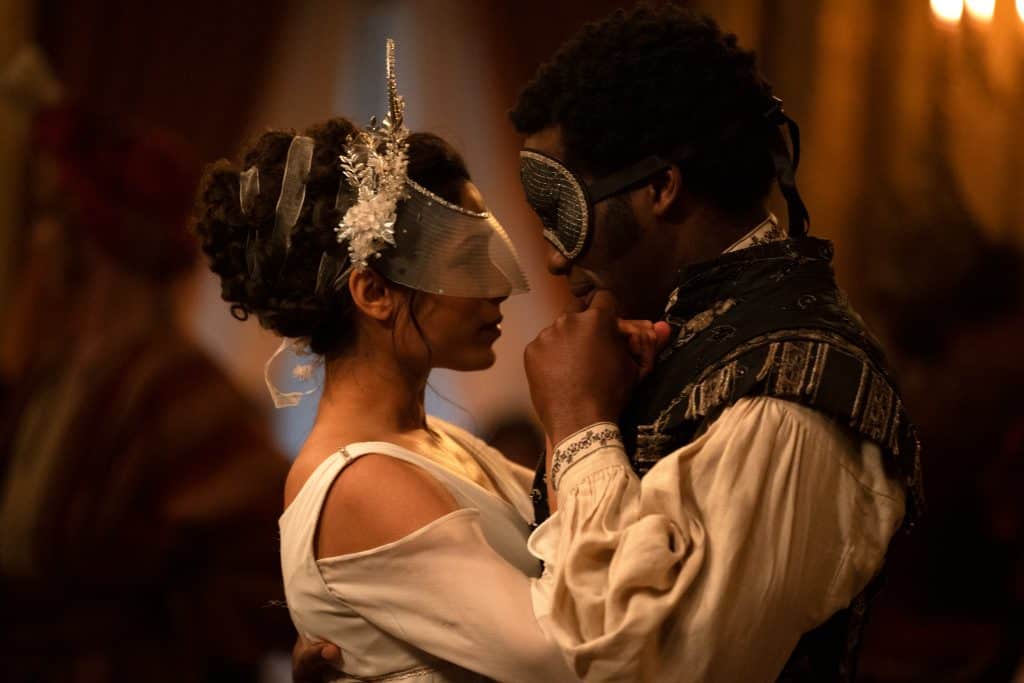
Besides expanding the romance genre to be more inclusive, Jones wants Mr. Malcolm’s List to provide a fun escape for audiences.
“All of the decisions we made were cultivated to evoke joy. I hope that, for people finding this film, it’s like a good cup of tea and brings a smile to their face.”
Mr. Malcolm’s List is currently in theaters, and will be released on VOD on July 21, 2022.
A late-stage millennial lover of most things related to pop culture. Becomes irrationally irritated by Oscar predictions that don’t come true.


